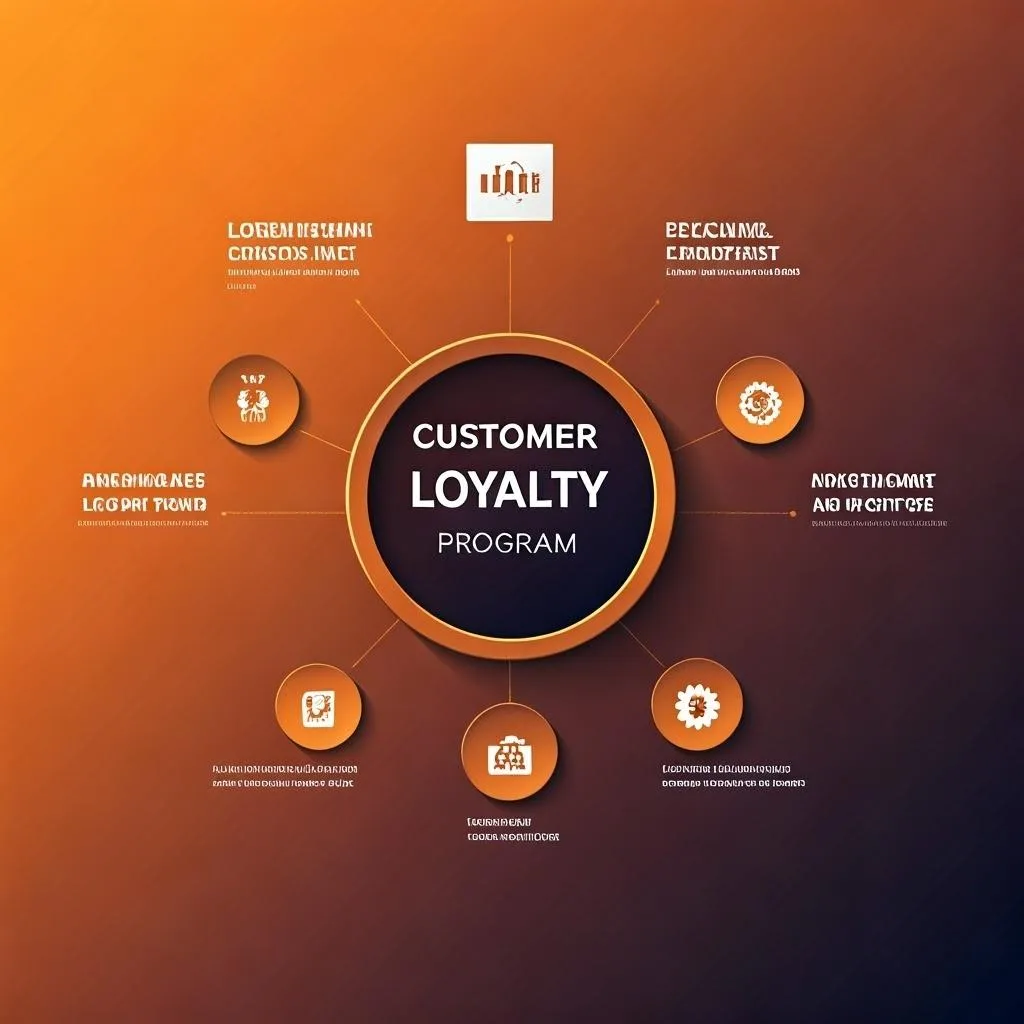
Franchise Customer Loyalty Programs: A Brief Overview
Franchise Customer Loyalty Programs: A Brief Overview
Customer loyalty programs have become a quintessential strategy for franchises looking to foster long-lasting relationships with their customers. Recognizing the need to maintain a competitive edge, these programs serve as a bridge between customer satisfaction and business growth. Research indicates that acquiring a new customer can cost five times more than retaining an existing one, underscoring the significance of loyalty programs in boosting profitability. Historically, loyalty initiatives began as simple punch cards in the early 20th century, evolving into sophisticated digital platforms to better align with today’s tech-savvy consumer base.
Customer loyalty is not merely a consumer retention strategy but a formidable factor in differentiating a business from its competitors. Successful franchises leverage loyalty programs to create a unique value proposition, enticing customers to choose their brand over others. By understanding the historical context and evolution of these programs, franchises can develop effective strategies to enhance customer loyalty and drive sustainable growth.

Need Help? Use International Quest Franchising, LLC
IQ Franchising helps businesses grow and expand through franchising by working closely with clients to build strong, successful franchise systems. We start by understanding your business, then develop a strategic plan that addresses opportunities and maximizes profits. Our expertise in project management and operational efficiency, like Lean & Six Sigma, ensures your franchise system is both effective and sustainable. With our support, your business can thrive, and franchisees can make a positive impact in their communities. Let us help you achieve success and reach your franchising goals. To learn more, Visit. (916) 774-7142
Diverse Approaches to Franchise Loyalty Programs
Franchise loyalty programs come in various forms, each with distinct advantages. Point-based systems are popular, rewarding customers with points for purchases, which are then redeemed for discounts or products. These systems effectively drive repeat business by incentivizing frequent visits.
Membership and tier-based programs add layers of exclusivity. Customers pay a fee or reach a certain spending threshold to access tiered benefits, encouraging higher spending levels for enhanced perks. Hybrid models, combining point systems with tiered benefits, offer a comprehensive approach to customer engagement and reward.
Examining case studies provides further insight. Starbucks' Rewards program and Amazon Prime's membership model are prime examples of successful loyalty initiatives. These programs highlight the importance of delivering tangible value to customers, setting benchmarks many franchises aspire to replicate.
Advantages of Loyalty Programs in Franchise Contexts
Implementing loyalty programs in franchises can significantly increase customer retention, leading to a steady stream of repeat business. Such programs unlock valuable customer insights, allowing franchises to tailor marketing efforts and promotions to customer preferences. This personalization fosters deeper connections and enhances engagement.
Loyalty initiatives also play a crucial role in strengthening franchise branding. Rewarding customers reinforces brand loyalty, translating into positive word-of-mouth and stronger community relationships. This symbiotic relationship between customer and franchise benefits both parties, leading to mutual growth and success.
Common Hurdles in Franchise Loyalty Programs
Despite their benefits, developing a seamless franchise loyalty program can be challenging. Ensuring consistency across various locations is a frequent obstacle, as each franchise may have different operational frameworks. Balancing the financial investment of loyalty programs with the perceived value by customers also requires careful consideration.
Technological integration is another hurdle, as franchises must align their loyalty platforms with existing systems. There's also the risk of customer fatigue, where repetitive rewards fail to excite. Keeping programs dynamic and engaging is essential for retaining interest and participation.
Strategies for Implementing Successful Loyalty Programs
A successful loyalty program aligns closely with the franchise's brand values and goals. Data analytics play a crucial role in this process, helping tailor rewards and incentives to customer preferences. Proper staff training is vital, equipping employees to manage and promote these programs effectively.
Customer feedback is a valuable tool for program refinement. Listening to customer needs and adapting strategies accordingly can enhance the program's impact, ensuring it remains relevant and engaging for the target audience.
Harnessing Technology in Loyalty Programs
Today's loyalty programs benefit immensely from technological advancements. Mobile apps and digital platforms increase accessibility, enabling customers to engage with programs on-the-go. Artificial intelligence offers personalized reward recommendations, enhancing the program's appeal.
Integrating with customer relationship management (CRM) systems allows for data-driven insights, while social media and online communities serve as vital channels for promoting and discussing loyalty initiatives. Franchises that integrate these technologies effectively are better positioned to meet modern consumer expectations.
Successful Franchise Loyalty Programs: Lessons and Insights
Examining successful franchise loyalty programs yields valuable lessons. Dunkin' Donuts' DD Perks Program, for instance, consistently incorporates customer feedback to improve and innovate, exemplifying adaptability. On the flip side, understanding why some programs fail—due to lack of value, for instance—can provide benchmarks for success.
Innovations in loyalty strategies, such as gamification and community involvement, illustrate creative approaches that drive engagement. By measuring key performance metrics, franchises can analyze the success of these programs and make informed adjustments.
Upcoming Trends in Franchise Loyalty Programs
The future of franchise loyalty programs points towards increased gamification, enriching customer experiences in interactive ways. There's a growing emphasis on sustainability, urging franchises to offer ethical rewards that resonate with environmentally conscious consumers.
Technologies like blockchain and cryptocurrency are anticipated to play a role in secure transactions, adding novelty and security to loyalty schemes. As consumer expectations continue to evolve, franchises must stay adaptable, embracing trends that align with their brand ethos and customer desires.
International Quest Franchising, LLC
Business Address: 3017 Douglas Blvd., Ste. 300
City: Roseville
State: CA
Zip: 95661
Phone: (916) 774-7142

